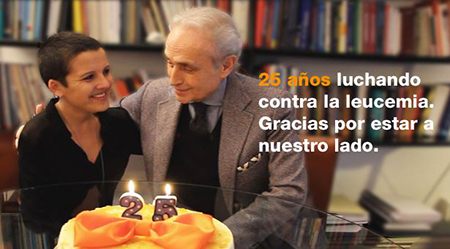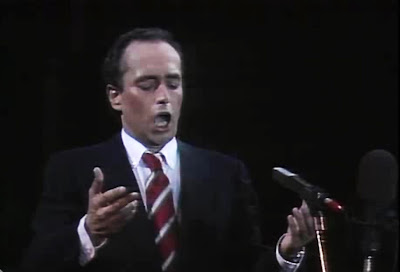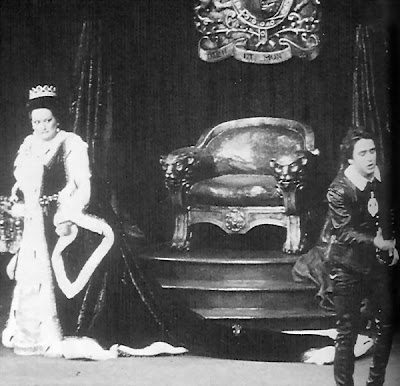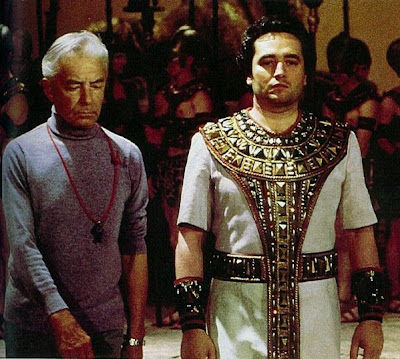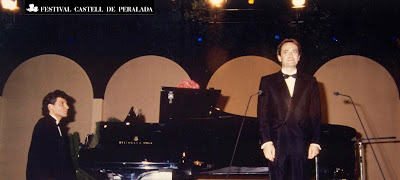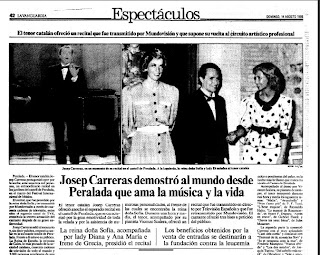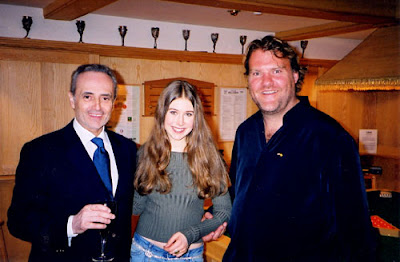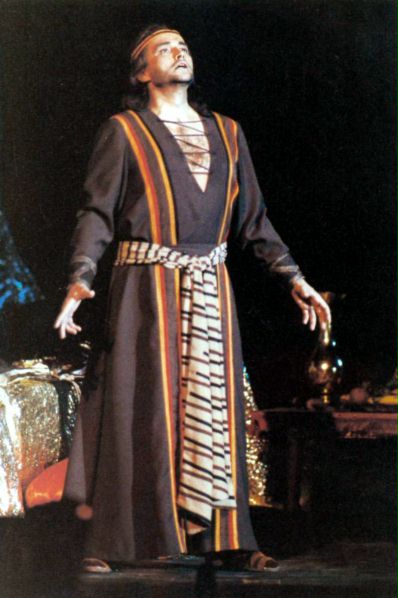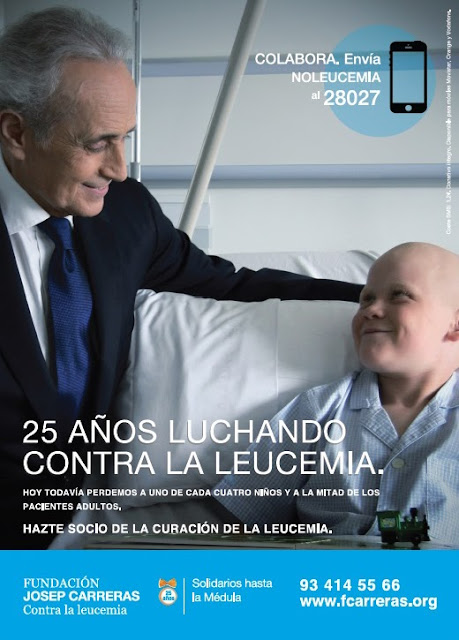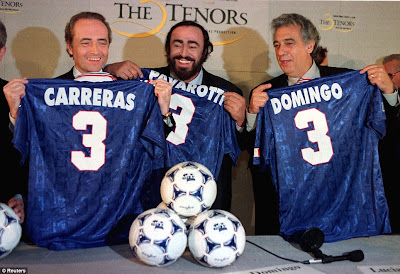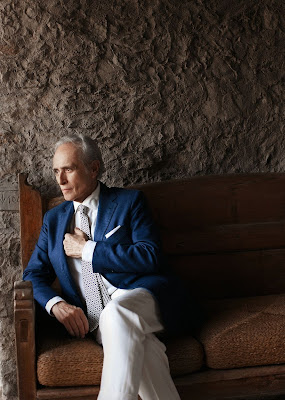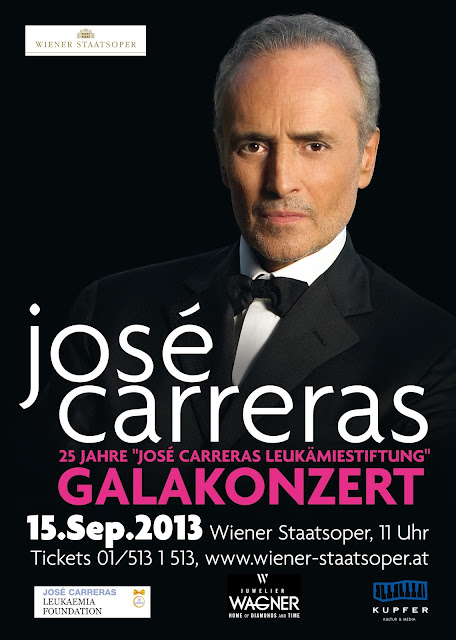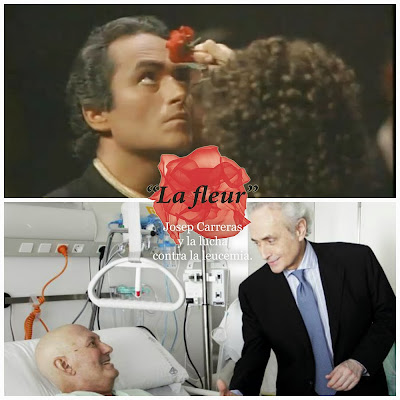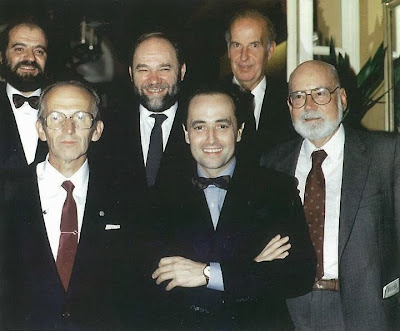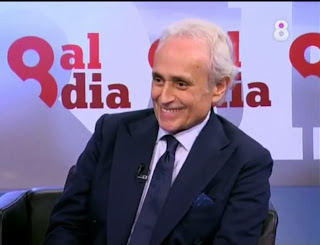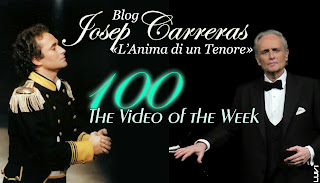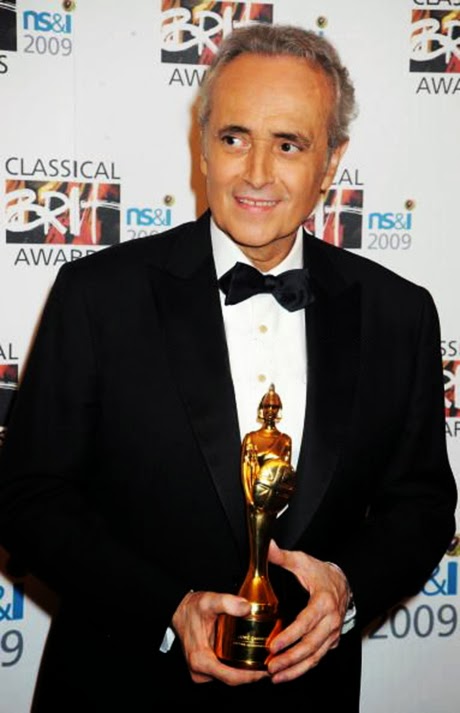Nonostante tutto il 2013 sia un anno speciale in quanto ricorrono i 25 anni della Fundación Josep Carreras, è bene ricordare che la sua data di nascita è proprio il 14 luglio del 1988: Josep Carreras ha creato a Barcellona la sua fondazione per la lotta contro la leucemia, con l'appoggio della famiglia e di un prestigioso gruppo di scienziati e impresari, e il progetto è nato dal desiderio di ripagare il suo debito nei confronti della scienza e della società, una pura testimonianza di gratitudine per il sostegno e l'affetto ricevuto durante la malattia.
La scelta del 14 luglio per ufficializzare la creazione di tale entità non risulta affatto casuale: basti pensare che esattamente un anno prima, nel giorno di anniversario della Presa della Bastiglia, Josep Carreras apprendeva la notizia della sua malattia, la severa diagnosi di leucemia linfatica acuta che ha interrotto bruscamente la sua attività professionale, ma soprattutto ha messo fortemente a rischio la sua vita. Un anno dopo, riconquistata la salute, ha stabilito la sua Fondazione con l'obiettivo che la leucemia potesse un giorno essere curabile per tutti ed in ogni caso.
Come il tenore ha affermato abbastanza recentemente, nonostante siano trascorsi ormai più di 25 anni avverte l'esperienza della sua battaglia personale contro la leucemia ancora molto vicina: all'epoca non si guardava alla malattia con l'approccio attuale e la parola cancro risultava decisamente più allarmante e spaventosa di quanto non lo sia ancora oggi. Nonostante il cammino verso il traguardo sia ancora lungo e tortuoso, i risultati raggiunti dalla ricerca scientifica ed, in modo particolare, quelli raggiunti grazie al contributo della Fondazione di Josep Carreras sono estremamente notevoli. Neanche un anno dopo l'avviamento, veniva inaugurata l'Unità di Trapianti dell'Hospital Clínic di Barcellona, finanziata dalla stessa Fondazione, ed in seguito alla nascita delle filiali in Svizzera e negli Stati Uniti nasceva nel 1991 il famoso REDMO, il Registro dei Donatori di Midollo Osseo che, a distanza di tre anni, veniva riconosciuto dal Ministero della Sanità come parte del Sistema di Salute a livello nazionale. Attualmente questo registro nazionale è collegato ai registri degli altri paesi di tutto il mondo.
Come è noto, una delle attività della Fundación Josep Carrerasè quella di predisporre degli appartamenti di accoglienza, Pisos de acogida, a vantaggio di quei pazienti e familiari provenienti da fuori, costretti a trattenersi a Barcellona durante il trattamento: il primo di questi è stato messo a disposizione nel 1994, ma attualmente se non erro sono sei e hanno ospitato pazienti e famiglie provenienti da diverse parti del mondo. Il 1995 segna la nascita della José Carreras Leukämie Stiftung, la filiale tedesca, e la prima delle 18 straordinarie edizioni del José Carreras Gala in Germania a beneficio della Fondazione. Alle soglie del nuovo millennio veniva inaugurata un'ulteriore Unità di Trapianti, questa volta presso l'Hospital Germans Trias i Pujol di Badalona, ed a seguire il REDMO raggiungeva il traguardo dei primi mille donatori compatibili localizzati per i pazienti in attesa di un trapianto.
Negli ultimi anni sono state organizzate presso diversi ospedali, per lo più a Barcellona e a Madrid, diverse campagne per sensibilizzare ulteriormente la società in merito alla causa della leucemia ed altre malattie del sangue: vi hanno partecipato anche illustri personalità dello spettacolo e dello sport come Iker Casillas, Víctor Valdés, Rafa Márquez, Txiki Begiristáin, Mario Casas e Maria Castro.
In particolare, nel 2009 Josep Carreras firma un accordo con la Generalitat de Catalunya per la creazione dell'Institut de Recerca contra la Leucèmia Josep Carreras (IJC): la prima pietra dell'edificio è stata posta il giorno 7 luglio dello scorso anno presso il Campus ICO/Germans Trias i Pujol di Badalona. Si tratta di un progetto storico ed incomparabile: l'unica struttura dedicata alla ricerca specifica sulle leucemie e le altre neoplasie ematologiche al momento esistenti in Europa ed una delle poche al mondo.
Questa non è che una sintesi del lodevole operato svolto dalla Fundación Josep Carreras: contando sulla generosità di più di 41.000 soci e più di 114.000 donatori di midollo osseo, l'attività mira in particolare al finanziamento della ricerca scientifica e a garantire ai pazienti una migliore qualità di vita. Attualmente solo in Spagna ogni anno si contano circa 5.000 nuove diagnosi di leucemia, una malattia cui statisticamente sopravvive un adulto su due e tre bambini su quattro. Come dicevo, la strada verso la totale cura è ancora lunga e la Fondazione ha bisogno di tutta la nostra generosità.
Questo però non ci impedisce di mostrare la massima gratitudine e stima per il lavoro svolto da tutta la squadra e per l'estrema generosità del loro presidente: Josep Carreras, che da 25 anni affianca alla propria attività professionale di cantante d'opera quella di presidente esecutivo che svolge con particolare dedizione ed entusiasmo, oltre a tenere ogni anno una serie di concerti e recital a beneficio esclusivo della Fondazione che fin dal primo momento è diventata per lui una priorità di estrema importanza. Sa con certezza che nel momento in cui deciderà di concludere il suo percorso professionale, potrà dedicarsi ancora di più all'attività umanitaria legata a questa entità ed ai progetti che le corrispondono.
Dal 1988 è impossibile limitare il ruolo di Josep Carreras a quello di uno dei più grandi e più amati tenori della storia: la sua guarigione, la creazione della Fondazione e il suo ruolo totalmente attivo all'interno di essa lo hanno reso un vero ambasciatore della speranza, simbolo della possibilità di vincere la malattia e di aggrapparsi ad essa con determinazione, fosse anche l'unica su un milione.
Key facts:
Come il tenore ha affermato abbastanza recentemente, nonostante siano trascorsi ormai più di 25 anni avverte l'esperienza della sua battaglia personale contro la leucemia ancora molto vicina: all'epoca non si guardava alla malattia con l'approccio attuale e la parola cancro risultava decisamente più allarmante e spaventosa di quanto non lo sia ancora oggi. Nonostante il cammino verso il traguardo sia ancora lungo e tortuoso, i risultati raggiunti dalla ricerca scientifica ed, in modo particolare, quelli raggiunti grazie al contributo della Fondazione di Josep Carreras sono estremamente notevoli. Neanche un anno dopo l'avviamento, veniva inaugurata l'Unità di Trapianti dell'Hospital Clínic di Barcellona, finanziata dalla stessa Fondazione, ed in seguito alla nascita delle filiali in Svizzera e negli Stati Uniti nasceva nel 1991 il famoso REDMO, il Registro dei Donatori di Midollo Osseo che, a distanza di tre anni, veniva riconosciuto dal Ministero della Sanità come parte del Sistema di Salute a livello nazionale. Attualmente questo registro nazionale è collegato ai registri degli altri paesi di tutto il mondo.
Come è noto, una delle attività della Fundación Josep Carrerasè quella di predisporre degli appartamenti di accoglienza, Pisos de acogida, a vantaggio di quei pazienti e familiari provenienti da fuori, costretti a trattenersi a Barcellona durante il trattamento: il primo di questi è stato messo a disposizione nel 1994, ma attualmente se non erro sono sei e hanno ospitato pazienti e famiglie provenienti da diverse parti del mondo. Il 1995 segna la nascita della José Carreras Leukämie Stiftung, la filiale tedesca, e la prima delle 18 straordinarie edizioni del José Carreras Gala in Germania a beneficio della Fondazione. Alle soglie del nuovo millennio veniva inaugurata un'ulteriore Unità di Trapianti, questa volta presso l'Hospital Germans Trias i Pujol di Badalona, ed a seguire il REDMO raggiungeva il traguardo dei primi mille donatori compatibili localizzati per i pazienti in attesa di un trapianto.
Negli ultimi anni sono state organizzate presso diversi ospedali, per lo più a Barcellona e a Madrid, diverse campagne per sensibilizzare ulteriormente la società in merito alla causa della leucemia ed altre malattie del sangue: vi hanno partecipato anche illustri personalità dello spettacolo e dello sport come Iker Casillas, Víctor Valdés, Rafa Márquez, Txiki Begiristáin, Mario Casas e Maria Castro.
 |
| Josep Carreras with a group of collaborators and ex patients in 2012. |
Questa non è che una sintesi del lodevole operato svolto dalla Fundación Josep Carreras: contando sulla generosità di più di 41.000 soci e più di 114.000 donatori di midollo osseo, l'attività mira in particolare al finanziamento della ricerca scientifica e a garantire ai pazienti una migliore qualità di vita. Attualmente solo in Spagna ogni anno si contano circa 5.000 nuove diagnosi di leucemia, una malattia cui statisticamente sopravvive un adulto su due e tre bambini su quattro. Come dicevo, la strada verso la totale cura è ancora lunga e la Fondazione ha bisogno di tutta la nostra generosità.
Questo però non ci impedisce di mostrare la massima gratitudine e stima per il lavoro svolto da tutta la squadra e per l'estrema generosità del loro presidente: Josep Carreras, che da 25 anni affianca alla propria attività professionale di cantante d'opera quella di presidente esecutivo che svolge con particolare dedizione ed entusiasmo, oltre a tenere ogni anno una serie di concerti e recital a beneficio esclusivo della Fondazione che fin dal primo momento è diventata per lui una priorità di estrema importanza. Sa con certezza che nel momento in cui deciderà di concludere il suo percorso professionale, potrà dedicarsi ancora di più all'attività umanitaria legata a questa entità ed ai progetti che le corrispondono.
Dal 1988 è impossibile limitare il ruolo di Josep Carreras a quello di uno dei più grandi e più amati tenori della storia: la sua guarigione, la creazione della Fondazione e il suo ruolo totalmente attivo all'interno di essa lo hanno reso un vero ambasciatore della speranza, simbolo della possibilità di vincere la malattia e di aggrapparsi ad essa con determinazione, fosse anche l'unica su un milione.
¡Muchísimas felicidades y aún más agradecimiento a la Fundación Josep Carreras contra la leucemia en el día de su 25 aniversario!
Moltíssimes gràcies, Josep!!
Key facts:
Despite the whole 2013 marks the 25 years of the José Carreras Leukaemia Foundation, we should remember that it was born on 14th July, 1988: Josep Carreras established his foundation for the fight against leukemia in Barcelona, with the support of his family and of a prestigious group of scientists and entrepreneurs, and the project comes from his desire to pay back his debt to science and society, as pure testimony of his gratitude for the support and affection received during his illness.
The date choice were not by chance: in fact, exactly one year before, on the day of the anniversary of the storming of the Bastille, Josep Carreras was diagnosed with acute lymphatic leukemia which stopped abruptly his professional activity, but mostly put his life in real danger. A year later he finally recovered and established his Foundation with the goal that leukemia could one day be a curable disease always and in every case.
As the tenor said quite recently, despite it happened more than 25 years ago, he still feels the experience of his personal battle against leukemia as very recent: at the time the approach to such disease was completely different, and the word cancer was definitely regarded as much more alarming and frightening than it is today. Despite the way towards the final goal is still long and tortuous, the results achieved by scientific research and, in particular, those achieved by the hand of the Carreras Foundation are extremely remarkable. Not even a year after the creation, the Transplant Unit at the Hospital Clínic of Barcelona, funded by the Foundation, was created, and right after the birth of the branches in Switzerland and the United States the famous REDMO, the Registry of Bone Marrow Donors was created in 1991, and, after three years, it was recognized by the Ministry of Health as part of the System of Health at a national level. Currently this national register is connected to all registries of other countries around the world.
As it is well known, one more element of the activities of the Fundation is constituted by the Pisos de acogida, special apartments to host those patients and families coming from outside, forced to stay in Barcelona during treatment: the first of these was made available in 1994, but now if I'm not mistaken six apartments are available and have hosted patients and families from different parts of the world. The year 1995 marks the birth of José Carreras Leukämie Stiftung, the German branch, and the first of the 18 extraordinary editions of the José Carreras Gala in Germany to support the Foundation. Right before the beginning of the new millennium they inaugurated one more Transplant Unit, this time at the Hospital Germans Trias i Pujol in Badalona, and after that the REDMO reached the goal of the first thousand compatible donors localized for patients waiting for a transplant.
In the last few years, several campaigns to further sensitize society about the cause of leukemia and other blood diseases were organized at various hospitals, mostly in Barcelona and Madrid: renowned people such as Iker Casillas, Víctor Valdés, Rafa Márquez, Txiki Begiristain, Mario Casas and Maria Castro have taken part to them.
In particular, in 2009 Josep Carreras signed an agreement with the Generalitat de Catalunya for the creation of the Josep Carreras Leukaemia Research Institute (IJC): the first stone of the building was laid last year on 7 July at the Campus ICO / Germans Trias i Pujol in Badalona. It is a historical and unique project: currently it is the only institute dedicated to specific research on leukemia and other hematologic malignancies in Europe, and one of the few ones around the world.
This is just a summary of the incredible work done by the Carreras Foundation: supported by the generosity of more than 41,000 members and more than 114,000 bone marrow donors, they mostly aim at supporting scientific research and give patients a better quality of life. Currently, only in Spain every year there are about 5,000 new diagnoses of leukemia, a disease to which onlu one out of two adults and three children out of four statistically survive. As I said, the road towards a total cure is still long and the Foundation needs all our generosity.
Anyway tjis does not prevent us to show the greatest gratitude and appreciation for the work done by the whole team and for the extreme generosity of their President: Josep Carreras, who has combined his profession as an opera singer to his activity as executive with such dedication and enthusiasm for 25 years, has offered every year series of concerts and recitals to benefit his Foundation that from the first moment has become an extremely important priority for him. In fact, he knows with certainty that the day his professional career will be over, he will be able to fully dedicate himself to the humanitarian work related to his entity and to its corresponding projects.
Since 1988 it is impossible to simply identify Josep Carreras as one of the greatest and most beloved tenors ever: his recovery, the creation of the Foundation and his fully active role within it have made him a true ambassador of the hope, a symbol of the possibility to overcome the disease and to strongly believe in it, was should it be only one in a million.
The date choice were not by chance: in fact, exactly one year before, on the day of the anniversary of the storming of the Bastille, Josep Carreras was diagnosed with acute lymphatic leukemia which stopped abruptly his professional activity, but mostly put his life in real danger. A year later he finally recovered and established his Foundation with the goal that leukemia could one day be a curable disease always and in every case.
As the tenor said quite recently, despite it happened more than 25 years ago, he still feels the experience of his personal battle against leukemia as very recent: at the time the approach to such disease was completely different, and the word cancer was definitely regarded as much more alarming and frightening than it is today. Despite the way towards the final goal is still long and tortuous, the results achieved by scientific research and, in particular, those achieved by the hand of the Carreras Foundation are extremely remarkable. Not even a year after the creation, the Transplant Unit at the Hospital Clínic of Barcelona, funded by the Foundation, was created, and right after the birth of the branches in Switzerland and the United States the famous REDMO, the Registry of Bone Marrow Donors was created in 1991, and, after three years, it was recognized by the Ministry of Health as part of the System of Health at a national level. Currently this national register is connected to all registries of other countries around the world.
As it is well known, one more element of the activities of the Fundation is constituted by the Pisos de acogida, special apartments to host those patients and families coming from outside, forced to stay in Barcelona during treatment: the first of these was made available in 1994, but now if I'm not mistaken six apartments are available and have hosted patients and families from different parts of the world. The year 1995 marks the birth of José Carreras Leukämie Stiftung, the German branch, and the first of the 18 extraordinary editions of the José Carreras Gala in Germany to support the Foundation. Right before the beginning of the new millennium they inaugurated one more Transplant Unit, this time at the Hospital Germans Trias i Pujol in Badalona, and after that the REDMO reached the goal of the first thousand compatible donors localized for patients waiting for a transplant.
In the last few years, several campaigns to further sensitize society about the cause of leukemia and other blood diseases were organized at various hospitals, mostly in Barcelona and Madrid: renowned people such as Iker Casillas, Víctor Valdés, Rafa Márquez, Txiki Begiristain, Mario Casas and Maria Castro have taken part to them.
In particular, in 2009 Josep Carreras signed an agreement with the Generalitat de Catalunya for the creation of the Josep Carreras Leukaemia Research Institute (IJC): the first stone of the building was laid last year on 7 July at the Campus ICO / Germans Trias i Pujol in Badalona. It is a historical and unique project: currently it is the only institute dedicated to specific research on leukemia and other hematologic malignancies in Europe, and one of the few ones around the world.
This is just a summary of the incredible work done by the Carreras Foundation: supported by the generosity of more than 41,000 members and more than 114,000 bone marrow donors, they mostly aim at supporting scientific research and give patients a better quality of life. Currently, only in Spain every year there are about 5,000 new diagnoses of leukemia, a disease to which onlu one out of two adults and three children out of four statistically survive. As I said, the road towards a total cure is still long and the Foundation needs all our generosity.
Anyway tjis does not prevent us to show the greatest gratitude and appreciation for the work done by the whole team and for the extreme generosity of their President: Josep Carreras, who has combined his profession as an opera singer to his activity as executive with such dedication and enthusiasm for 25 years, has offered every year series of concerts and recitals to benefit his Foundation that from the first moment has become an extremely important priority for him. In fact, he knows with certainty that the day his professional career will be over, he will be able to fully dedicate himself to the humanitarian work related to his entity and to its corresponding projects.
Since 1988 it is impossible to simply identify Josep Carreras as one of the greatest and most beloved tenors ever: his recovery, the creation of the Foundation and his fully active role within it have made him a true ambassador of the hope, a symbol of the possibility to overcome the disease and to strongly believe in it, was should it be only one in a million.
The very best wishes and even more gratitude to the José Carreras Foundation on its 25th Birthday!
Thank you so much, Josep!!
